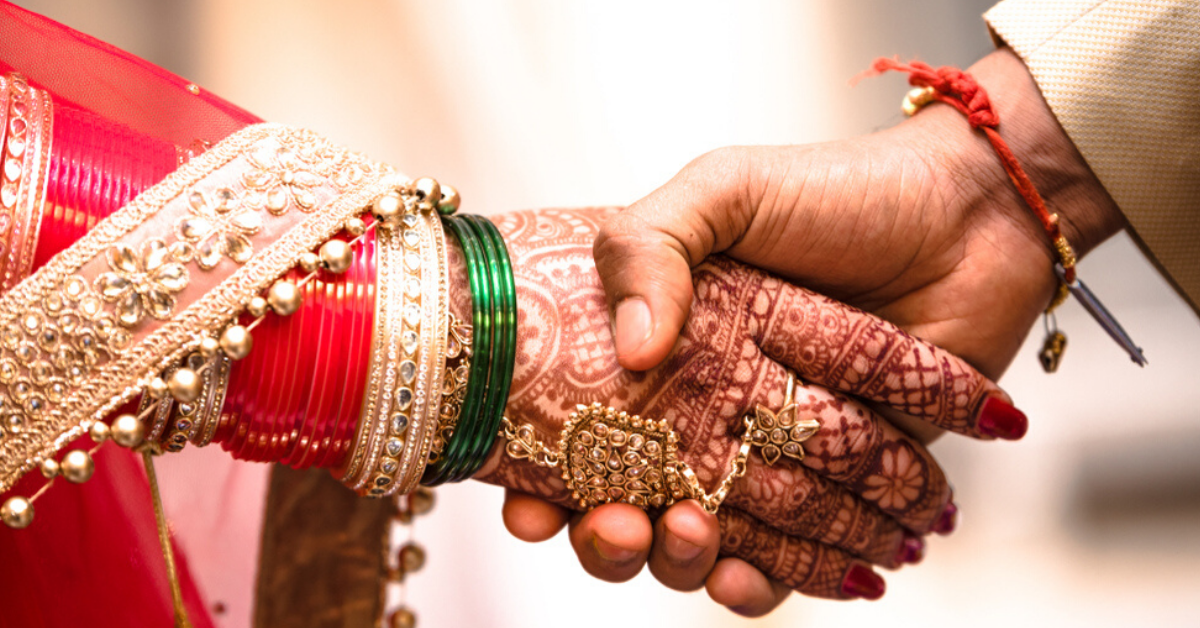Amidst all the hustle and bustle of your wedding, you may not have had the time actually to look into the procedures of registering your marriage.
Here’s an updated list of the various acts under which you can get your marriage registered in India, the documents required, the procedure as well as its benefits to clear up all your confusion.
Benefits of a Marriage Certificate

A marriage certificate is beneficial for claiming the family pension, bank deposits, life insurance benefits when the depositee or the Insurer dies without a nomination or otherwise.
The need for a marriage certificate comes up when you need to prove that you are legally married to someone, for purposes like obtaining a passport, visa or changing your maiden name.
It is also helpful in cases of a husband working and living abroad on a work permit or a residence visa and wants the wife to join him or vice-versa.
In cases of divorce, legal separation, alimony, or custody of children, courts may insist on seeing the marriage certificate.
Marriage Acts in India
There are two marriage acts in India—The Hindu Marriage Act, 1955 and The Special Marriage Act, 1954.
The Hindu Marriage Act, 1955: A marriage can be registered under the Hindu Marriage Act if both the husband and wife are Hindus, Sikhs, Buddhists, Jains or have converted to any of these religions.
The Special Marriage Act, 1954: Marriages under any religion can be registered under this Act. This Act is also applicable to those having an inter-religious marriage and for Indian nationals living abroad.
Documents Required
- Completely filled application form signed by both husband and wife
- Age proof (both parties)
- Two passport sized photographs (both parties), one marriage photograph
- Separate Marriage Affidavits from both parties stating place and date of marriage, date of birth, marital status at the time of marriage and nationality (in the given format)
- Aadhaar Card (both parties)
- Address proof of husband or wife whose area Sub District Magistrate has been approached for the certificate.
- Marriage Invitation Card, if available
- Attested copy of divorce decree/order in case of a divorcee and death certificate of spouse in case of widow/widower.
- If the marriage was conducted in a religious place, a certificate from the priest who solemnized the marriage.
- A conversion certificate from the priest who solemnized the marriage (in the case of Hindu Marriage Act).
- Rs. 100/- in case of Hindu Marriage Act and Rs.150/- in case of Special Marriage Act have to be deposited with the cashier of the district. The receipt should be attached with the application form.
Note: All the documents attached must be self-attested.
What is the exact procedure?
Marriages under both acts must be registered in the respective Gram Panchayat/Municipality/Corporation where the wedding took place.
For Hindu Marriage Act, 1954
The marriage application form must be collected and filled. The husband and wife should sign it, along with two people who are witnesses.
The form must be accompanied by the documents mentioned above. After the documents are verified, you will be given an appointed date with the registrar.
On the appointed date, the husband and wife will appear personally before the Sub District Magistrate along with a gazetted officer who attended the wedding and sign the marriage register.
The certificate is issued on the same day.
For The Special Marriage Act, 1955
After the documents are submitted along with the application, there is a 30 day notice period inviting objections.
A copy of the notice is posted on the notice board of the office, and a copy of the notice is sent to the given addresses of both parties.
Registration with the Sub District Magistrate is done after the 30 days notice period.
Both parties, along with three witnesses, must be present at the time of registration.
Also Read: How to Apply For Birth Certificate: Offline & Online Steps to Follow
(Edited by Gayatri Mishra)
Like this story? Or have something to share? Write to us: contact@thebetterindia.com, or connect with us on Facebook and Twitter.
If you found our stories insightful, informative, or even just enjoyable, we invite you to consider making a voluntary payment to support the work we do at The Better India. Your contribution helps us continue producing quality content that educates, inspires, and drives positive change.
Choose one of the payment options below for your contribution-
By paying for the stories you value, you directly contribute to sustaining our efforts focused on making a difference in the world. Together, let's ensure that impactful stories continue to be told and shared, enriching lives and communities alike.
Thank you for your support. Here are some frequently asked questions you might find helpful to know why you are contributing?

